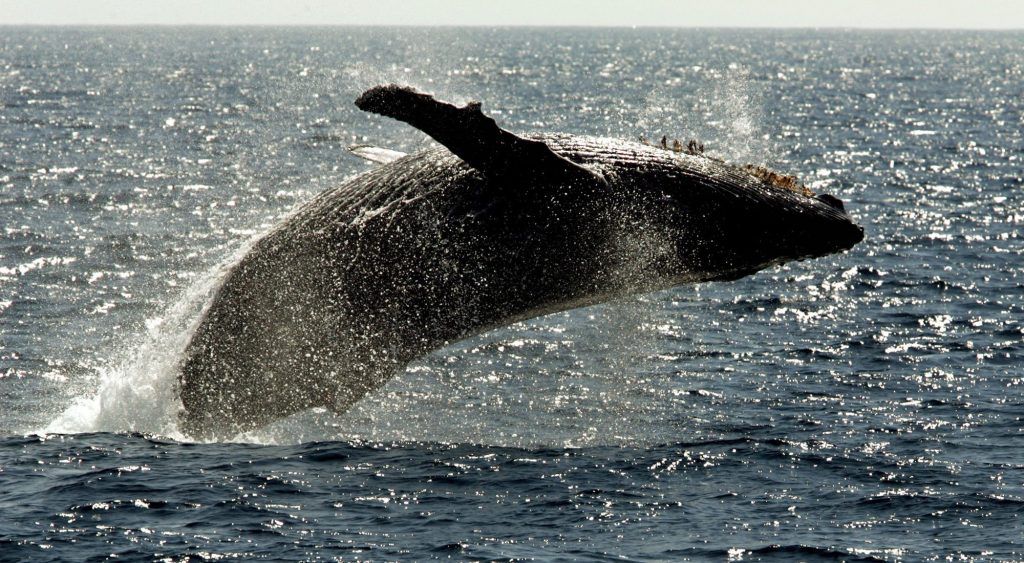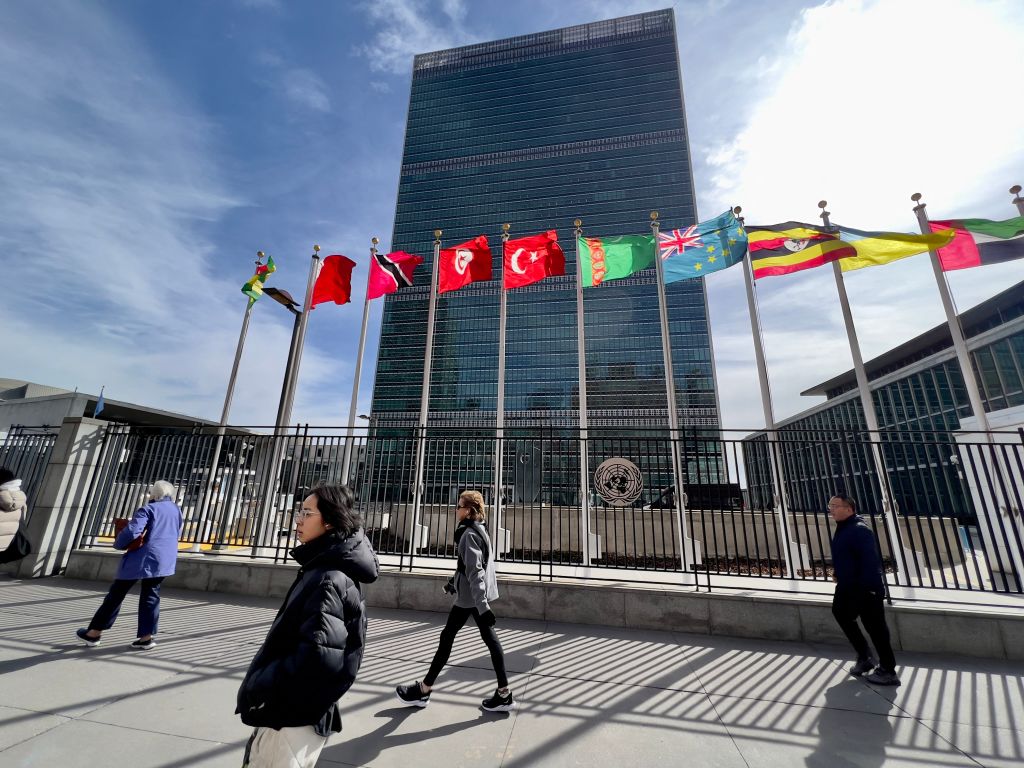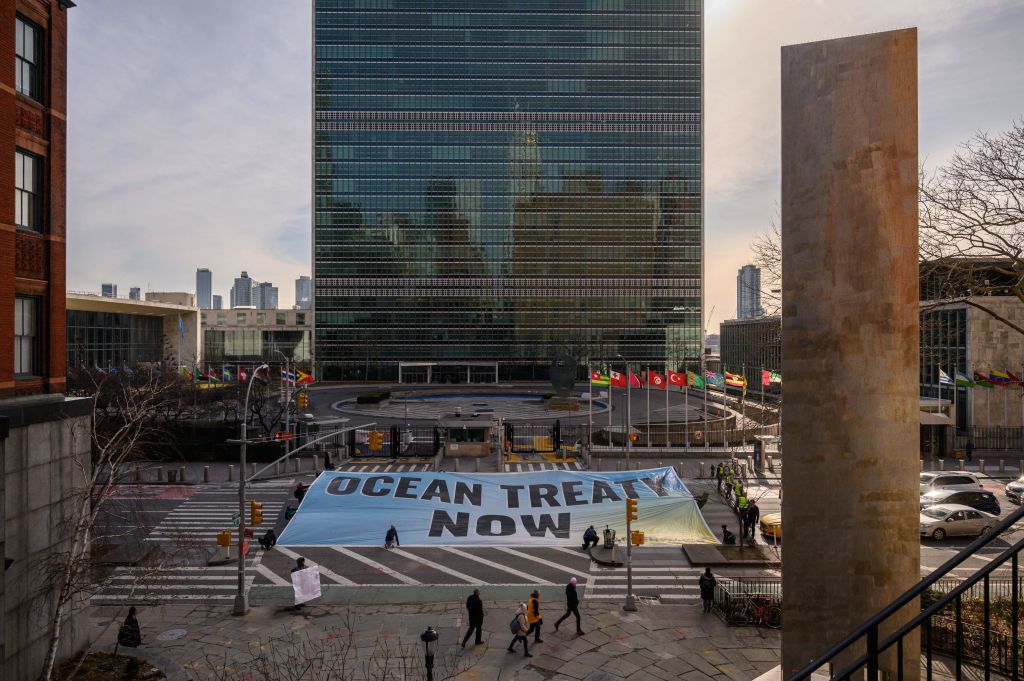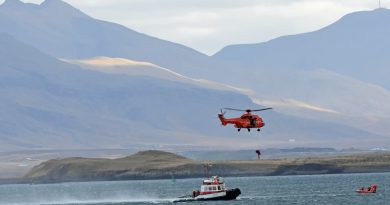UN high seas treaty praised by Inuit Circumpolar Council

The Inuit Circumpolar Council (ICC) has applauded the United Nations’ high seas treaty reached this month, saying it will contribute to the protection of the Inuit homeland in the North.
“Inuit are a maritime people – we depend on the coast, ocean and sea ice for our food security, culture and economy,” Sara Olsvig, ICC’s International Chair, said in a statement.
“From an Inuit perspective, like human rights, all living beings are interrelated, interdependent and interconnected – when one dimension is impacted there is a dynamic cascade amongst connecting ecological structures across abiotic, biotic and cultural elements.
“When Inuit look out across the ocean, we see an ocean that connects us rather than separate us. The oceans are the life of Inuit and all people worldwide.”
The maritime biodiversity treaty was reached on March 4.
The agreement outlines how to protect and responsibly use the marine life in areas that are outside individual countries’ jurisdictions.

The treaty covers almost two thirds of the ocean under the United Nations Convention on the Law of the Sea.
“The marine mammals, fish and birds that visit the Arctic through their lifecycles sustain us and the Arctic Ocean provides the rich nurseries for many of the planet’s biodiversity,” Olsvig said.
“Inuit are a maritime people – we depend on the coast, ocean and sea ice for our food security, culture and economy. From an Inuit perspective, like human rights, all living beings are interrelated, interdependent and interconnected – when one dimension is impacted there is a dynamic cascade amongst connecting ecological structures across abiotic, biotic and cultural elements.”
The UN says the agreement will help tackle climate change, biodiversity loss and pollution.
Indigenous knowledge included amongst principles
Among the principles outlined in the document is accessing Indigenous knowledge only if free, prior and informed consent is given.
“The co-production of knowledge must be developed in a way that is consistent with Inuit and other Indigenous peoples as rights holders — and knowledge holders — in every aspect of research and related activities,” Olsvig said. “Indigenous knowledge is necessary for addressing the inter-related ocean, biodiversity and climate change crises.”
Lisa Koperqualuk, ICC Canada president, says Inuit are at the forefront of climate change with knowledge that can assist the world community.
“Inuit are at the forefront of the multiple planetary crisis of climate change, biodiversity loss and contaminants and as such see this agreement and the Kunming – Montreal Global Biodiversity Framework as important steps towards a future for our grandchildren,” Koperqualuk added.
“Global action is needed to protect the Arctic and Inuit applaud this advancement.”

Agreement to come into force after countries’ ratifications
The agreement will come into force 120 days after it’s ratified by sixty countries.
ICC represents the approximately 180,000 Inuit in Alaska, Canada, Greenland, and Chukotka, Russia.
Write to Eilís Quinn at eilis.quinn(at)cbc.ca
Related stories from around the North:
Canada: Central Arctic Ocean fishing moratorium comes into effect, Eye on the Arctic
Finland: What a Saami-led salmon rewilding project in Arctic Finland can teach us about Indigenous science, Eye on the Arctic
Greenland: Glowing snailfish full of antifreeze proteins found off coast of Greenland, Eye on the Arctic
United States: Alaska’s Bering snow crab, king crab seasons cancelled, The Associated Press



